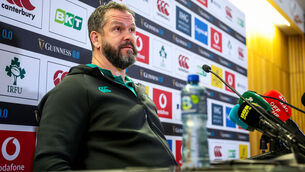IRFU outlines TV nightmare
The IRFU chief executive was joined in Dublin by John Feehan, his counterpart with the Six Nations, and Derek McGrath who holds the same post with the Heineken and Amlin Cup organisers, the ERC.
Along with representatives of all four Irish provinces, the three chief executives had convened in the ERC HQ earlier to coordinate their riposte to a proposal which they claim will have a disastrous effect on Irish – and European – rugby.















